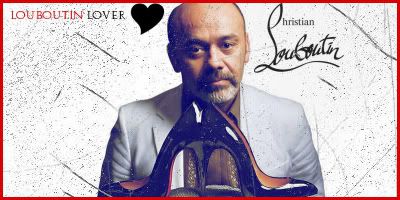Post by The Big PINK One♥ on Jul 24, 2007 14:11:29 GMT -5
Too often, candidates think a job search is all about selling their specific skills. Skills are only commodities. They get you in the door, but they don't win you the job. HR managers now receive 100 or more resumes per job posting, so it's easy to get lost in the resume shuffle with dozens of other candidates. How can you stand out and get selected?
A great way to do that is to take a lesson from Madison Avenue, the masters of marketing, and develop a "slogan" of your own. Slogans -- or "branding images" or "taglines" -- work by promising you a benefit for using a particular product.
What's Your Benefit?
Employers don't buy just skills. They want to know how you can be an asset to their bottom line. This boils down to only
two areas where you can provide a benefit:
How will you help an employer make money?,
or
How will you help an employer save money?
When you answer this question, you set yourself apart from most of your competitors. The best way to accomplish this is to develop your own slogan. Called a "Unique Selling Proposition" (USP), this is a short sentence that describes a major, unique benefit that you can offer your next employer.
Add Strength to Skills
For example, if you're a project manager you have a number of skills, such as software, hardware and management expertise. Trouble is, most other project managers competing with you have the same skills. If you think further, though, you find your particular strength might be your ability to identify and solve problems early in your projects.
So your USP goes something like this:
"Seasoned project manager with a strength in identifying and solving problems."
Find the Money
Now add one more item, and that's the benefit to the employer. Since employers buy "making money" or "saving money," try to find a way to attach dollars to it. This is called monetizing your benefit and it's what will separate you from every other project manager you compete with. It may take some research or calculations but it's well worth the effort.
Try to arrive at a conservative figure for how much money you helped your employer make or save on a given project, sale or time period. In this case, our project manager calculated that he helped save his employer over $3 million in a three-year period while he completed over $12 million in projects. His USP becomes this:
"Seasoned project manager whose strengths in identifying and solving problems have saved my employer over $3 million while completing over $12 million worth of projects during the past 3 years."
By placing this one sentence front and center at the top of his resume (as a "summary" statement), magic can start to happen. No longer is this candidate a commodity. The employer can clearly see the benefit of having an employee who can bring their special talent to help save $3 million.
A great way to do that is to take a lesson from Madison Avenue, the masters of marketing, and develop a "slogan" of your own. Slogans -- or "branding images" or "taglines" -- work by promising you a benefit for using a particular product.
What's Your Benefit?
Employers don't buy just skills. They want to know how you can be an asset to their bottom line. This boils down to only
two areas where you can provide a benefit:
How will you help an employer make money?,
or
How will you help an employer save money?
When you answer this question, you set yourself apart from most of your competitors. The best way to accomplish this is to develop your own slogan. Called a "Unique Selling Proposition" (USP), this is a short sentence that describes a major, unique benefit that you can offer your next employer.
Add Strength to Skills
For example, if you're a project manager you have a number of skills, such as software, hardware and management expertise. Trouble is, most other project managers competing with you have the same skills. If you think further, though, you find your particular strength might be your ability to identify and solve problems early in your projects.
So your USP goes something like this:
"Seasoned project manager with a strength in identifying and solving problems."
Find the Money
Now add one more item, and that's the benefit to the employer. Since employers buy "making money" or "saving money," try to find a way to attach dollars to it. This is called monetizing your benefit and it's what will separate you from every other project manager you compete with. It may take some research or calculations but it's well worth the effort.
Try to arrive at a conservative figure for how much money you helped your employer make or save on a given project, sale or time period. In this case, our project manager calculated that he helped save his employer over $3 million in a three-year period while he completed over $12 million in projects. His USP becomes this:
"Seasoned project manager whose strengths in identifying and solving problems have saved my employer over $3 million while completing over $12 million worth of projects during the past 3 years."
By placing this one sentence front and center at the top of his resume (as a "summary" statement), magic can start to happen. No longer is this candidate a commodity. The employer can clearly see the benefit of having an employee who can bring their special talent to help save $3 million.



